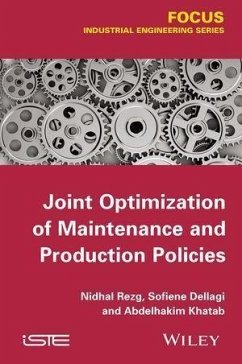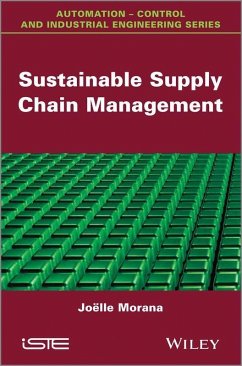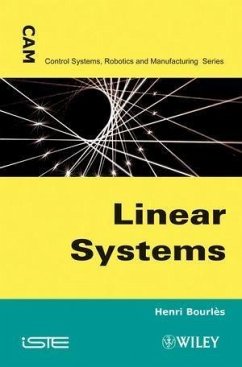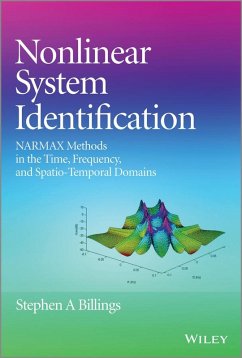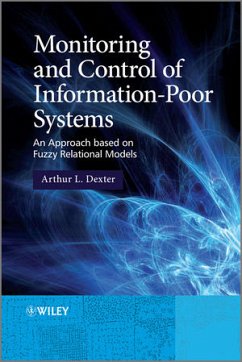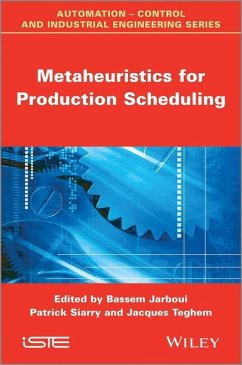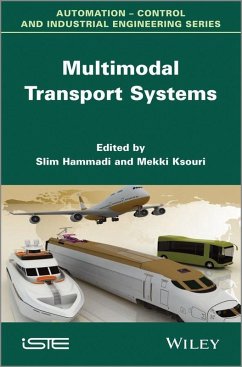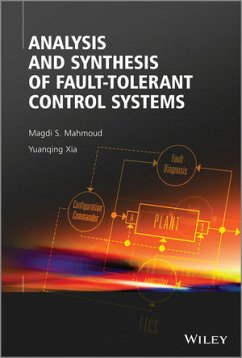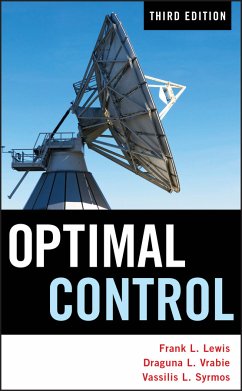
Metaheuristics for Production Scheduling (eBook, PDF)
Versandkostenfrei!
Sofort per Download lieferbar
186,99 €
inkl. MwSt.
Weitere Ausgaben:

PAYBACK Punkte
0 °P sammeln!
This book describes the potentialities of metaheuristics forsolving production scheduling problems and the relationship betweenthese two fields. For the past several years, there has been an increasing interestin using metaheuristic methods to solve scheduling problems. Themain reasons for this are that such problems are generally hard tosolve to optimality, as well as the fact that metaheuristicsprovide very good solutions in a reasonable time. The first part ofthe book presents eight applications of metaheuristics for solvingvarious mono-objective scheduling problems. The second part isitsel...
This book describes the potentialities of metaheuristics forsolving production scheduling problems and the relationship betweenthese two fields. For the past several years, there has been an increasing interestin using metaheuristic methods to solve scheduling problems. Themain reasons for this are that such problems are generally hard tosolve to optimality, as well as the fact that metaheuristicsprovide very good solutions in a reasonable time. The first part ofthe book presents eight applications of metaheuristics for solvingvarious mono-objective scheduling problems. The second part isitself split into two, the first section being devoted to fivemulti-objective problems to which metaheuristics are adapted, whilethe second tackles various transportation problems related to theorganization of production systems. Many real-world applications are presented by the authors, makingthis an invaluable resource for researchers and students inengineering, economics, mathematics and computer science. Contents 1. An Estimation of Distribution Algorithm for Solving Flow ShopScheduling Problems with Sequence-dependent Family Setup Times,Mansour Eddaly, Bassem Jarboui, Radhouan Bouabda, Patrick Siarryand Abdelwaheb Rebaï. 2. Genetic Algorithms for Solving Flexible Job Shop SchedulingProblems, Imed Kacem. 3. A Hybrid GRASP-Differential Evolution Algorithm for Solving FlowShop Scheduling Problems with No-Wait Constraints, Hanen Akrout,Bassem Jarboui, Patrick Siarry and Abdelwaheb Rebaï. 4. A Comparison of Local Search Metaheuristics for a HierarchicalFlow Shop Optimization Problem with Time Lags, Emna Dhouib, JacquesTeghem, Daniel Tuyttens and Taïcir Loukil. 5. Neutrality in Flow Shop Scheduling Problems: Landscape Structureand Local Search, Marie-Eléonore Marmion. 6. Evolutionary Metaheuristic Based on Genetic Algorithm:Application to Hybrid Flow Shop Problem with AvailabilityConstraints, Nadia Chaaben, Racem Mellouli and FaouziMasmoudi. 7. Models and Methods in Graph Coloration for Various ProductionProblems, Nicolas Zufferey. 8. Mathematical Programming and Heuristics for Scheduling Problemswith Early and Tardy Penalties, Mustapha Ratli, Rachid Benmansour,Rita Macedo, Saïd Hanafi, Christophe Wilbaut. 9. Metaheuristics for Biobjective Flow Shop Scheduling, MatthieuBasseur and Arnaud Liefooghe. 10. Pareto Solution Strategies for the Industrial Car SequencingProblem, Caroline Gagné, Arnaud Zinflou and Marc Gravel. 11. Multi-Objective Metaheuristics for the Joint Scheduling ofProduction and Maintenance, Ali Berrichi and Farouk Yalaoui. 12. Optimization via a Genetic Algorithm Parametrizing the AHPMethod for Multicriteria Workshop Scheduling, Fouzia Ounnar,Patrick Pujo and Afef Denguir. 13. A Multicriteria Genetic Algorithm for the Resource-constrainedTask Scheduling Problem, Olfa Dridi, Saoussen Krichen and AdelGuitouni. 14. Metaheuristics for the Solution of Vehicle Routing Problems ina Dynamic Context, Tienté Hsu, Gilles Gonçalves andRémy Dupas. 15. Combination of a Metaheuristic and a Simulation Model for theScheduling of Resource-constrained Transport Activities, VirginieAndré, Nathalie Grangeon and Sylvie Norre. 16. Vehicle Routing Problems with Scheduling Constraints, RahmaLahyani, Frédéric Semet and Benoît Trouillet. 17. Metaheuristics for Job Shop Scheduling with Transportation,Qiao Zhang, Hervé Manier, Marie-Ange Manier. About the Authors Bassem Jarboui is Professor at the University of Sfax,Tunisia. Patrick Siarry is Professor at the Laboratoire Images, Signaux etSystèmes Intelligents (LISSI), University of Paris-EstCréteil, France. Jacques Teghem is Professor at the University of Mons, Belgium.
Dieser Download kann aus rechtlichen Gründen nur mit Rechnungsadresse in D ausgeliefert werden.




